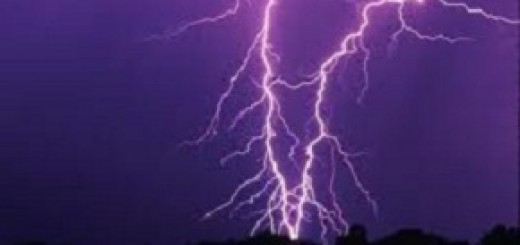By Avner Friedmann
This week’s Parshah devotes a full chapter to the conduct of the nation of Israel when engaging in war. It tells us not to fear our enemies because HaShem fights our battles. The chapter begins,[1] “When you go out to war against your enemy, and you see horse and chariot, a people more numerous than you – you shall not fear them, for Hashem, Your G-d, is with you, Who brought you up from the land of Egypt.”
The Holy Ohr HaChaim[2] explains that this verse not only refers to national wars. It also hints at the battles each and every one of us fights in relation to his or her evil inclination (The Yetzer HaRa). We have no greater enemy than our evil inclination; it leads us to transgressions and distracts us from learning Torah and fulfilling the mitzvot. The Yetzer HaRa is like a war horse, always ready to attack. The Parshah teaches us that though the forces of negativity within us may be “More numerous than you”, nonetheless, “You shall not fear them, for Hashem, your G-d, is with you”. If we rely only on ourselves, we have no chance of winning, even if we exert a great amount of effort. However, when Hashem is with us, we can overcome all obstacles, as it is written[3], “If one comes to purify himself, he is given assistance from above”.
Rabbeinu Bachyah[4] tells of a group of soldiers returning with great spoils and booty after a difficult war. They were happy and proud of their great victory. A pious man encountered and said, “I see you’ve just returned from protecting our nation through battle. Now prepare yourselves for the real war”. The men replied, “What war do you mean? Is there a greater war than the one we just fought?” The man replied, “Prepare to battle against the Yetzer HaRa and its many soldiers, “more numerous than you.”
Other enemies, surrender once defeated, and the winner is left to enjoy the fruits of his victory. Not so this enemy. As many times as he is defeated, he does not give up. He always returns to attack again. He is determined and has endless tricks up his sleeve. He is persistent, so that if we let down our defenses, he overcomes us and defeats us, G-d forbid[5]. However, whoever overcomes the Yetzer HaRa, is truly mighty, as it states[6]: “Who is mighty? Whosoever subdues his evil inclination”.
King Solomon, the wisest of men stated[7]: “He who is slow to anger is better than a strong man, and the master of his passions than the conqueror of a city”. A truly mighty person controls his natural tendencies and feelings and rules over his spirit. Such a person, specifically, is called by the term “Adam” (Man).[8] This is a primary purpose of man; to rule over his animalistic tendencies and sublimate himself to HaShem.
Part of our mission in this world is to magnify goodness and subdue evil. However, if we are of flesh and blood, how can we accomplish this? Isn’t the Yetzer HaRa an angelic force that is stronger than us? What makes it possible for us to defeat it? The Holy Zohar states[9] that the only real defense against the Yetzer HaRa is the study of Torah, as written,[10] “If your enemy is hungry, feed him bread (i.e. Torah).” It is as if HaShem is telling us,[11] “My child! I created the Yetzer HaRa and I created the Torah as its antidote”. Just as a spice can be added to food to make it more edible, so can the Torah be applied in our lives to curb our evil inclination.
Ultimately, to overcome the Yetzer HaRa is a gift from HaShem, as our sages stated[12]: “A person’s Yetzer HaRa threatens to overpower and kill him every day. If not for the Holy One, Blessed is He, Who comes to his aid, he would be incapable of withstanding it”. When we learn Torah and invest our effort into it, the Torah promises[13]: “When you will go out to war against your enemies and HaShem, your G-d, delivers them into your hands etc.” In other words, it is HaShem Who delivers them into your hands.
Our sages tell us[14]: “In the future HaShem will take the Yetzer HaRa and slaughter it in the presence of the righteous and the wicked. To the righteous the Yetzer HaRa will seem like a high mountain that can barely be scaled, and to the wicked it will seem like a thin strand of hair that can easily be snapped. These and these will weep. The righteous will weep saying, “How did we overcome such a high mountain?” The wicked will weep saying, “Why couldn’t we overcome such a thin strand of hair”. May HaShem come quickly to our aid and help us defeat both our internal and external enemies with the true and complete redemption through our righteous Moshiach.
[1] 20:1.
[2] On 20:1, and Ki Teitze 21:10.
[3] Yomah 38b.
[4] The Duties of the Heart, Sha’ar Hyichud, Perek 5.
[5] Ohr Hachaim Ki Teitze 21:10.
[6] Avot is 4:1.
[7] Proverbs 16:32.
[8] Ohr Israel, letter 17.
[9] Zohar Chadash, Ki Teitzei 72a.
[10] Proverbs 25:21.
[11] Kidushin 30b.
[12] Sukkah 52b. Kidushin 30b.
[13] Ki Teitze 21:10.
[14] Sukkah 52a.






















